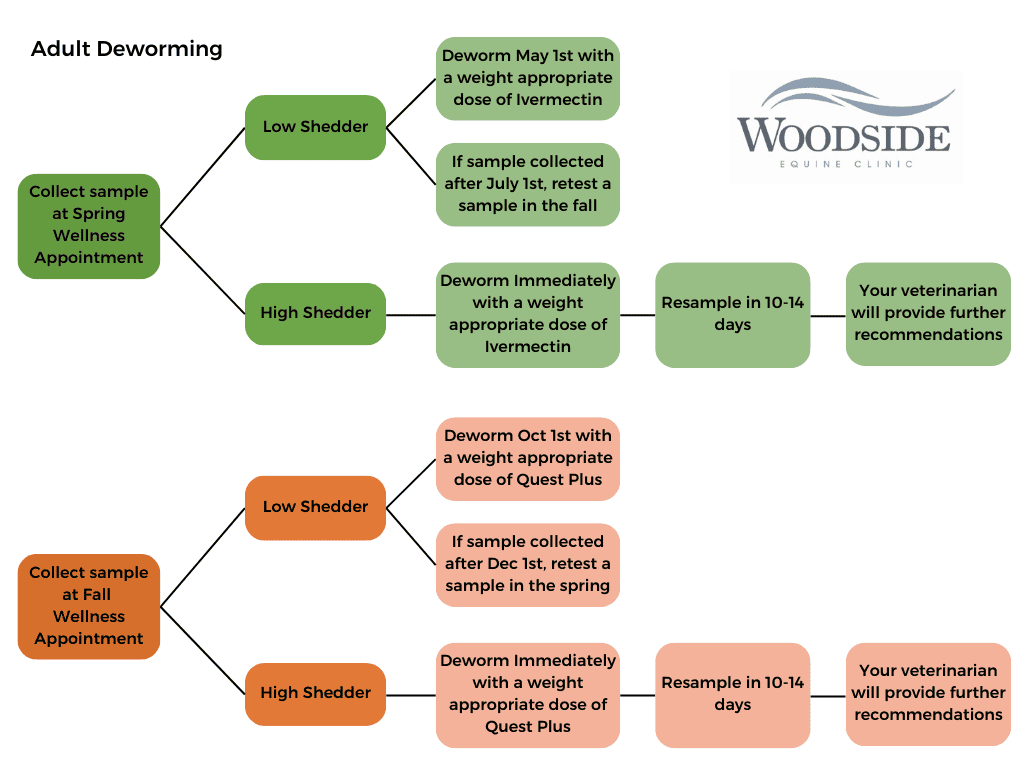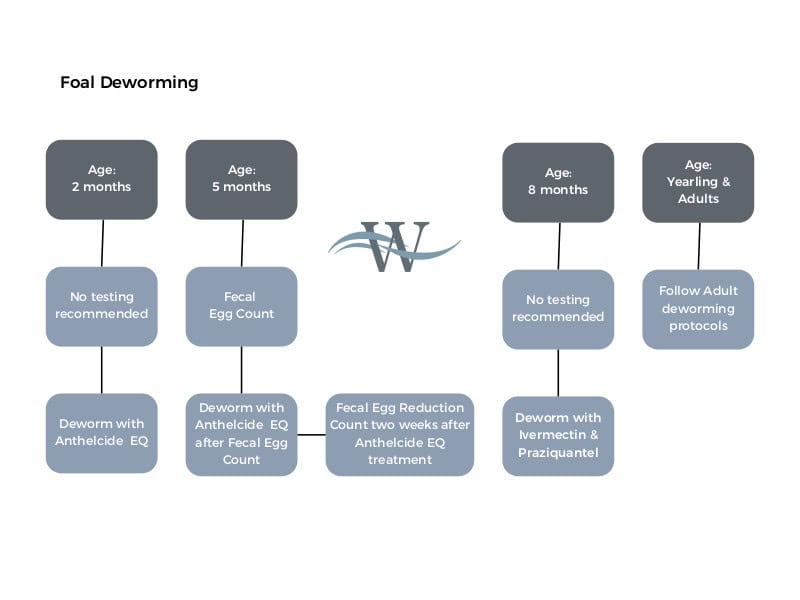Parasite and Deworming Information
The internal parasites that pose the biggest threat to our horses have changed over time. In adult horses, we’re most concerned with cyathostomes, also known as small strongyles. In foals and weanlings, the major parasitic threat is roundworms (Parascaris Equorum). The old system of deworming every 6-8 weeks has had the unfortunate side effect of allowing parasites to evolve with resistance to multiple types of dewormers.
The resistance of parasites needs to be determined for each farm, since this differs from farm to farm. Horses vary in their susceptibility to infection with strongyles as well as the number of strongyle eggs they shed in their manure. This means we need to set up deworming programs based on the individual horse.
Goals of a Deworming Program
When considering the goals of a deworming program, it is first important to understand that ridding your horses of all internal parasites is NOT the goal. Eliminating these parasites is not only impossible to achieve, but will also hasten the parasites becoming resistant to the dewormers that are still effective. Instead our goals should be to:
- Minimize the risk of parasitic disease.
- Reduce the number of parasite eggs that are shed by the horse.
- Avoid further resistance.
A key component of a successful deworming program is collecting fecal samples during “prime” grazing seasons. In our climate, this will be mid-late spring and mid-late fall most years. This is because strongyles will lay more eggs during these times of year. The parasites don’t want to put their eggs on fields where their survival is less likely—when it’s too hot or too cold. The following chart will outline the schedule we follow for fecal collection and deworming:


Recommendations for fecal sampling and storage:
- Collect 2-3 fecal balls from different locations in one manure pile, not all 3 side-by-side.
- Samples should be stored in airtight and leak-proof containers or plastic bags with as much air removed as possible
- Manure samples should be as fresh as possible and refrigerated immediately after collection
- Fecal samples that are or have been frozen are not acceptable as this will damage the eggs and decrease the accuracy of the test results
- Diarrhea samples are not acceptable for FEC (fecal egg counts)
If you have questions or concerns, please contact the team at Woodside Equine Clinic at (804) 798-3281.

